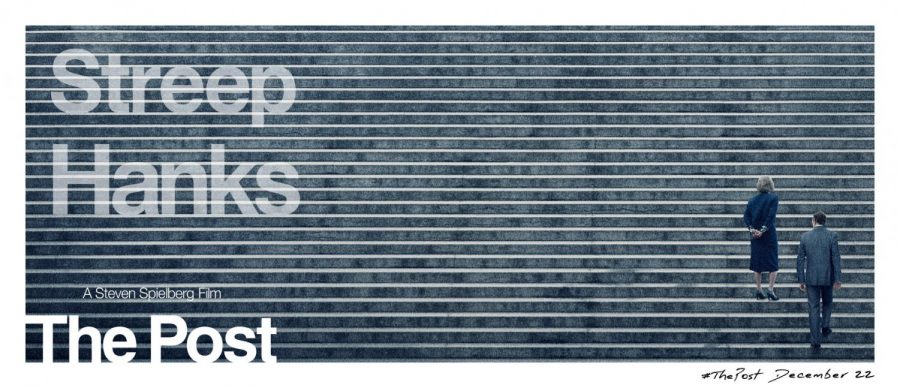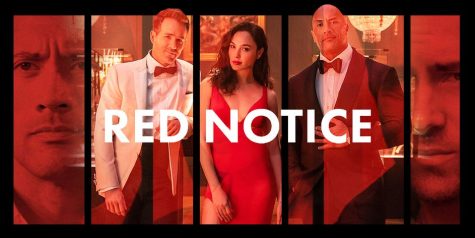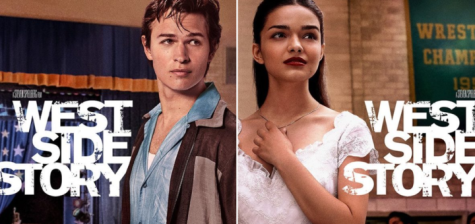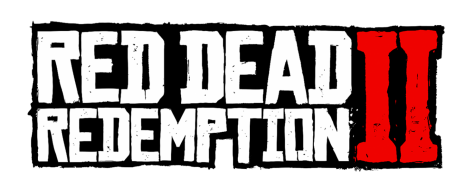The Post is a celebration of free speech and truth
Steven Spielberg’s film documents the publishing of the Pentagon Papers.
I was surprised when I walked into the auditorium to find that I was clearly the youngest person there to watch Steven Spielberg’s latest film, The Post. Is there nobody, I thought to myself, who cares about this important moment in recent American history that made such an impact on how the government and the news media interact?
The film not only made the story of the publication of the Pentagon Papers exciting, but it was a crucial reminder that this type of story — in which we are reminded of the institutional and personal responsibilities connected to living in a free and open society — must be seen and remembered by young and old alike.
The publishing of the Pentagon Papers — documenting the truth behind how the Vietnam War was being prosecuted and how that story was purposely distorted by the government as it was relayed to the American public — in 1971 by first The New York Times and then The Washington Post was an historic victory for the free press and the First Amendment.
That victory echoes louder than ever today, as the media is under intense scrutiny and attack by people in positions of power.
The movie begins with Daniel Ellsberg, played by Matthew Rhys, photocopying approximately 7,000 classified documents detailing how the administrations of four presidents, from Eisenhower to Nixon, lied to the U.S. Congress and public about the war in Vietnam.
The New York Times was the first newspaper to receive the Pentagon Papers and begin publishing them, but it was halted by a court injunction when the Nixon administration argued that it violated the Espionage Act of 1917. While the case was being adjudicated, officials at The Washington Post debated whether they should continue publishing the papers.
The film centers on Katharine Graham, the Post’s first female publisher played by Meryl Streep, and executive editor Ben Bradlee (Tom Hanks) struggling to reach a decision. The information was certainly vital to the public interest, but publishing the papers threatened the newspaper’s very existence and made prison time a real possibility for the people running it.
The Post is, certainly, about how the Pentagon Papers were released to the public, but the focus here isn’t so much on the reporters or newspaper staff, but on Mrs. Graham and the difficulties she faced in guiding the decision. She was a woman in a man’s world, told that she did not deserve the executive power at her disposal.

Ben Bradlee, who died in 2014, was editor of The Washington Post when the newspaper published the Pentagon Papers.
In the course of the film, it is suggested that Mr. Bradlee, although technically Mrs. Graham’s subordinate, is really in control.
“The world was starting to be opened up to the opportunities for women,” Ms. Streep said in an interview with HBO. “Katharine Graham was born not to feel like she belonged in a leadership position.”
The movie shows the evolution of Mrs. Graham from a lonely woman who is shunned by the men in her life to a leader capable of taking charge under intense pressure.
The film is incredibly timely from dual standpoints: A woman being demeaned and threatened by men, while the newspaper she is running is being threatened by a president who feels he has the power to stifle the free press.
“When I read the first draft of the script, this wasn’t something that could wait three years or two years,” Mr. Spielberg told USA Today. “This was a story I felt I needed to tell today.”
Ann Hornaday, The Washington Post’s current chief film critic, connected the concept of government secrets and President Nixon’s desperation to hide the truth to President Donald J. Trump’s attempts to deflect connections to Russia during his run for the White House.
“Now, it’s as if the president is not suppressing the truth; it’s trying to say the truth doesn’t exist,” Ms. Hornaday said in an interview with the cast.
The Post is a serious film with occasional humor, which helps make a topic likely to bore a teenager into an exciting drama that hooks the audience immediately. Mr. Spielberg took an historic event that helped to shape the way journalism operates today and turned it into art, seamlessly connecting themes from nearly a half century ago to life in modern America.
Even for a viewer as young as 17, the messages definitely resonate, leaving one with a sense of shared triumph and the need to celebrate Katharine Graham, Ben Bradlee, The Washington Post, and the First Amendment.
This is not just a history lesson.

Richard Chang is a senior who has been at AMSA since 6th grade. He is interested in
pursuing English and journalism in college. He lives with his parents,...












